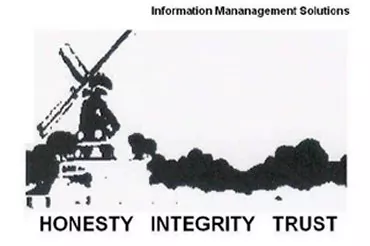Is Expropriation Ever In The Public Interest?
Within international standards of best practise there is broad acceptance that the public interest is only safely served in the building of a country's physical infrastructure, such as roads, ports, waterways, airports, hospitals and schools.
In recent years this declaration of public purpose has been stretched to the removal of "blight" and strategic urban regeneration. However, in most cases, a detailed plan must be approved and a robust developer identified as capable of delivery, before a government begins its forced acquisition of private property.
Usually, there is considerable public scrutiny and wide consultation within a formal framework of checks and balances demanded by good governance.
In spite of pockets of resistance to the abuse of power which arise from the interpretation of the language in legal decisions and precedents, various governments have succeeded in expanding the concept into the realm of commercial property, without any intention of changing its use when re-developed.
By doing so, these governments have taken on commercial ventures and risks which are not within a government's purview or ability to manage.
A key purpose and expectation of legitimate government is to provide protection and comfort for its people.
Both of these goals involve reducing the risks that surround each and every citizen: risks of war, of crime, of sickness, of hunger, of losing personal freedom and property. Government raises taxes to pay the costs of reducing these risks and has the right to borrow funds when the cost of mitigating these risks exceeds its ability to provide the services required.
But there is no mandate, in any democracy or republic, for a government to take unnecessary risks on behalf of its people. Development and management of commercial ventures are fraught with risks resulting from numerous conditions which a government can affect and influence, but not control.
The current financial crisis is a case in point.
It is therefore not surprising that there is now a growing number of "toxic" expropriations by governments, whose officials have twisted the concept of public interest to serve their personal agendas.
Whether this occurs in Cuba, Zimbabwe, Venezuela, Costa Rica or Antigua, the process is very much the same.
Initially, expropriation of private property is justified to the nation on the basis of public interest.
A common theme is then played out.
The property owner is shown to have been unjustly enriched by ownership of that property, which the government will now be transferring to "the people." Furthermore, the owner being forced to give up his property is unworthy of fair treatment. This also "justifies" the absence of any compensation for the "acquisition."
Time is then allowed to pass. Memories are allowed to fade.
The final step is taken when the property is transferred into the hands of individuals closely linked by politics and financial dealings to the government in power.
"The people" have been forgotten and have become irrelevant.
This process is much easier when the property is taken from non-nationals. There is the added mistrust of an already demonised foreigner, which can readily be converted to righteous indignation,
The government's actions of depriving the foreigner of ill-gotten gains are encouraged and applauded.
However, foreign owners are inward investors, who take recourse in the law and carry their rights to the highest level of international jurisprudence. This creates consequences for the acquisitive government, which is never shared with the citizens, who, in the end, are most affected by the fallout.
A perfect example is the expropriation of the Half Moon Bay Resort by the Government of Antigua and Barbuda.
Many have recorded the history of this expropriation, including several articles published by Mondaq.com, but it is worth looking at the political and economic consequences of this action.
Politically, the Government of Antigua & Barbuda has breached international treaties and its expropriation of American-owned property has caused a drought in effective foreign direct investment.
This expropriation has raised the country risk for legitimate lenders to any property development on Antigua.
In spite of verbal reassurances and even ceremonial groundbreakings, none of the substantial developments announced during the last decade have been realised.
Smaller developments caught in the financial squeeze are likely to remain unfinished. This does not help employment, raise taxes or benefit the economy.
It certainly is not in the public interest.
Economically, by the "acquisition" of the property at Half Moon Bay, the Government of Antigua & Barbuda has assumed a substantial debt.
The Privy Council Decision allowed the application of eminent domain to the property, conditional upon the owners' constitutional right to payment of "fair compensation within a reasonable time."
By statute, delay of such payment carries a cost of interest on the amount due.
The process of compensation as described in the Land Acquisition Act and embarked upon under duress of a court order against the Government of Antigua & Barbuda is still in its initial stages, with further delays caused by the absence of any precedent.
There is no established mechanism to drive the process because this is the first time it has been invoked.
This is not surprising, since this is also the first expropriation of foreign-owned property in the history of Antigua & Barbuda. With elections due in the spring of 2009, no effort is made to revive, let alone resolve, the issue of Half Moon Bay.
Meanwhile, in addition to the U.S. $ 60,000,000 valuation placed on the property by CBRichard Ellis, the internationally recognised assessor, the Government is running up an interest bill of approximately U.S. $500,000 per month from the date of possession, July 2007.
No doubt the people of Antigua will make the calculations but how this expropriation can be construed to be "in the public interest" will require much deeper evaluation.
The content of this article is intended to provide a general guide to the subject matter. Specialist advice should be sought about your specific circumstances.


